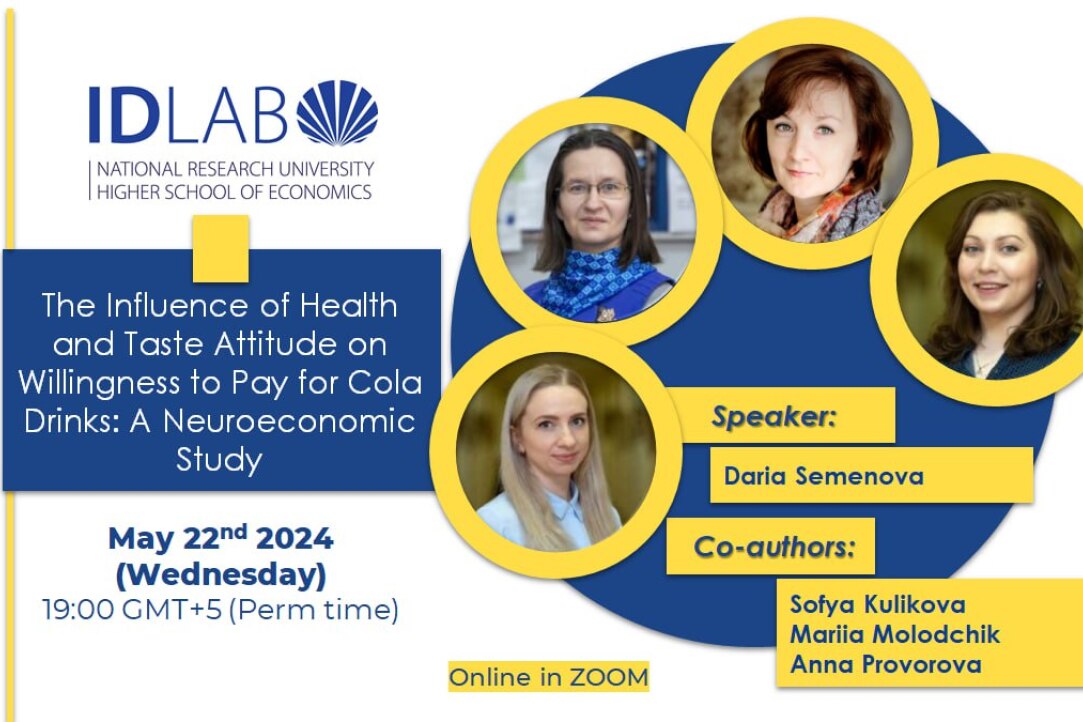IDLab Workshop
Daria Semenova presented the study ' The Influence of Health and Taste Attitude on Willingness to Pay for Cola Drinks: A Neuroeconomic Study ', conducted in collaboration with Mariia Molodchik, as well as with the researchers of Centre for Cognitive Neuroscience - Sofya Kulikova and Anna Provorova

Despite a significant number of studies focused on the role of consumer attitudes towards health and taste preferences when choosing food products, only a few have examined the relationship between health attitudes and consumers' willingness to pay, as well as their connection with taste and neurological reactions that occur in the mind during the decision-making process about the willingness to pay.
In this study, the authors examined how taste and a preference for healthy food affect the willingness to pay for cola drinks. The experiment consisted of three stages: a preliminary questionnaire in which respondents were asked about their socio-demographic characteristics and value orientations towards healthy eating, as well as blind and open tastings. During the blind and open tastings, respondents answered questions about the taste and their willingness to pay, and brain activity was recorded using an electroencephalograph. Overall, 40 people were analyzed. The results show that a preference for healthy food triggers a neurological reaction that reduces the willingness to pay for cola drinks, while a craving for sweetness directly increases it. However, this dynamic changes when people receive information about the sugar content in cola-type drinks. The craving for sweetness enhances sensory taste perception, which leads to an increased willingness to pay. Moreover, both a preference for healthy food and taste simultaneously stimulate brain activity, but the conflicting effects become insignificant in terms of willingness to pay.
